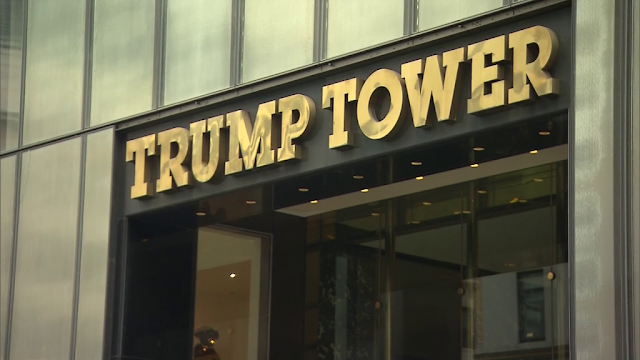Donald Trump, he is an enigma. He took the political world by surprise. Every day his words and actions continue to stir up debate (and might continue to do so, depending on what happens after November 3rd). He brings out either shock and disgust or cheering and adoration. But let us look a little deeper, to try and understand how we got where we are today, and – most interestingly – how Donald Trump got into the position where he is today. There are many sides to this story, and books will probably continue to be written about him for a long time, but in this piece I would like to have a look at the personality cult that developed around him and that is one of the supporting factors for his presidency.
 |
| Donald J. Trump, he sure did manage to make a name for himself |
Trump’s political following looks like a personality cult. He loves to hold rallies (doesn’t matter if there is corona), where his supporters wildly cheer him. Left-wing observers are surprised time and time again how easily he gets away with inconsistencies and downright lies. In fact, they just seem to add to his popularity. This is because with Trump, it is not about being right or wrong, what matters is whether you are with him or against him. If you report against him, you are ‘fake’ news. Trump is not interested in truth, but rather in unquestioned authority and blind allegiance. Only that is ‘right’ in his eyes.
But is it so surprising that America spawned such a personality cult, and that the object of it was a man with the likes of Trump? America is after all the land of Hollywood, shining celebrities and the prized American Dream. Are there many other countries where politics are so dramatized in the media, to the extent that politicians are almost treated as celebrities and the elections as a reality show? Is it a coincidence then that a man who gained fame through a reality show won those elections?
Not only are politicians treated as celebrities, celebrities play an influential role in American culture and politics.(1) Celebrities are interesting creatures, they do not need to have any achievements or qualities, their distinguishing quality is their fame itself.(2) In that sense Donald Trump could well be the perfect celebrity. He has repeatedly lied about his success as a business man, and was mainly successful in selling his own name. His qualities as a leader are questionable, his experience was non-existent, but that did not matter to his voters. Maybe to them, he held the promise of the realization of the American Dream.(3) To others, this hollowed out version of the American Dream turned into a nightmare.
There is only one person that glorifies the Donald more than his supporters, and that is the man himself, to the extent that he has repeatedly been called narcissistic. But is it strange that a reported narcissist came to rule over a country that champions individualism and is reported to be undergoing a narcissism epidemic? After becoming a television celebrity and a billionaire, becoming president of the ‘greatest nation on Earth’, might well have been the logical next step in his self-aggrandizement.(4)i
 |
| As a business man, Trump was mostly successful in licensing out his own name |
Another thing that helped Trump stand out, is his use of social media. They are increasingly important in the political debate. Twitter is the perfect medium for a leader like him and he knows perfectly well how to use it to his his advantage. Only short quotes, where you try to attract as much attention as you can, without having to show any depth or skill. Analysts even say that Trump has presided over a ‘coarsening’ of political language.
In all, I believe that Trump’s fame, and his hot-headed shouting matches on Twitter and in rallies, are instrumental in his rise to power. This helped him to make a (very costly) name for himself. But just like all of us, he is also a product of his environment. We cannot forget that and just label him as ‘crazy’ or ‘eccentric’. If we would want things to change, and if we don’t want to be taken by surprise again, we need to understand the conditions that helped shape our current predicament. There is a lot more to say about this, which I have already done some previous posts, and might also do in the future. The last word has not been said yet about this man.
__________
(1) Seriously, why do celebrities even feel the need to endorse presidents?
(2) One can effectively just be ‘famous for being famous’.
(3) Trump was not the first celebrity turned president. Ronald Reagan preceded him, and interestingly also made American politics swing to the right.
(4) In his address at the last Democratic National Convention, his predecessor Barack Obama seems to hint at something similar.
Comments
Post a Comment